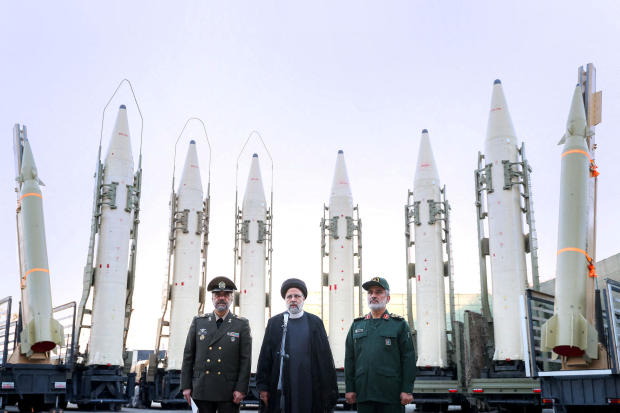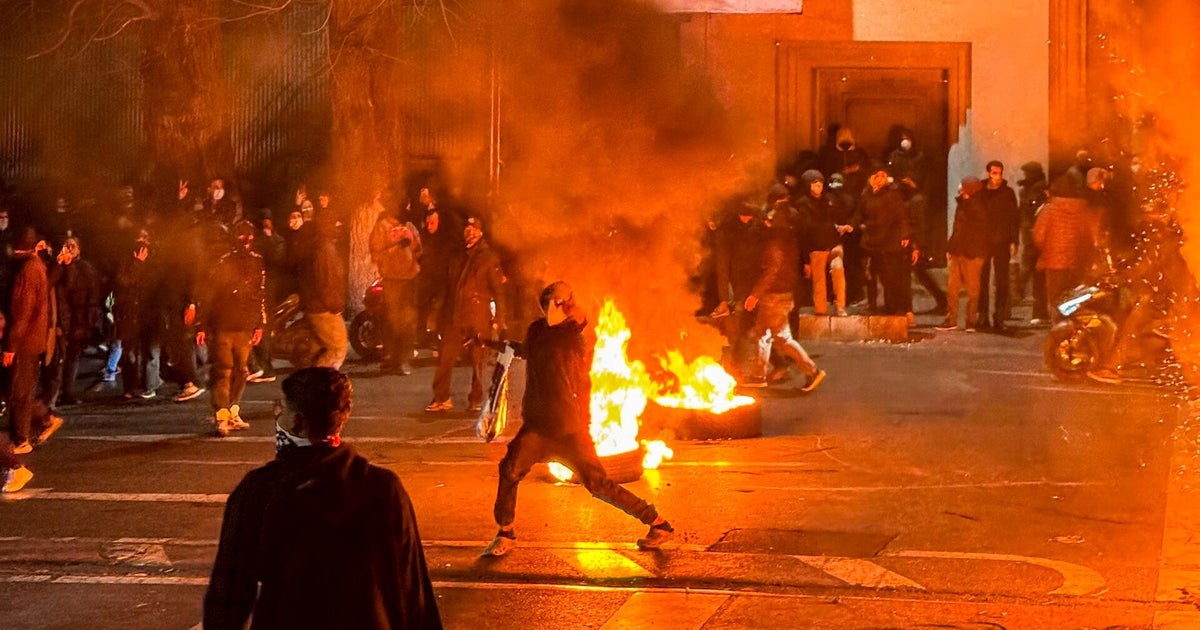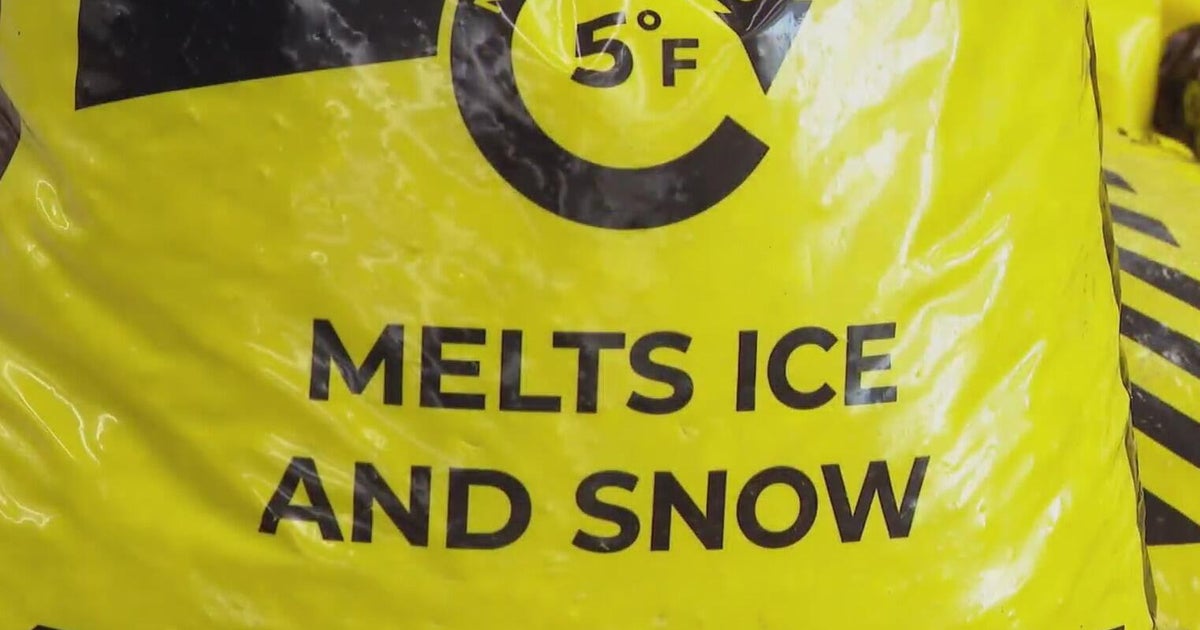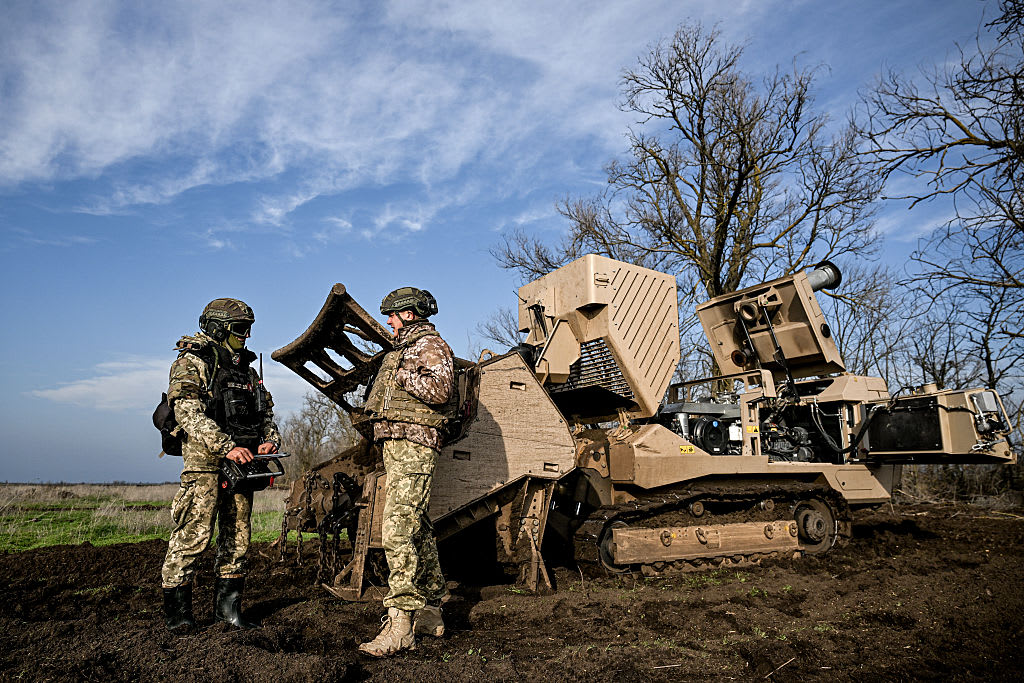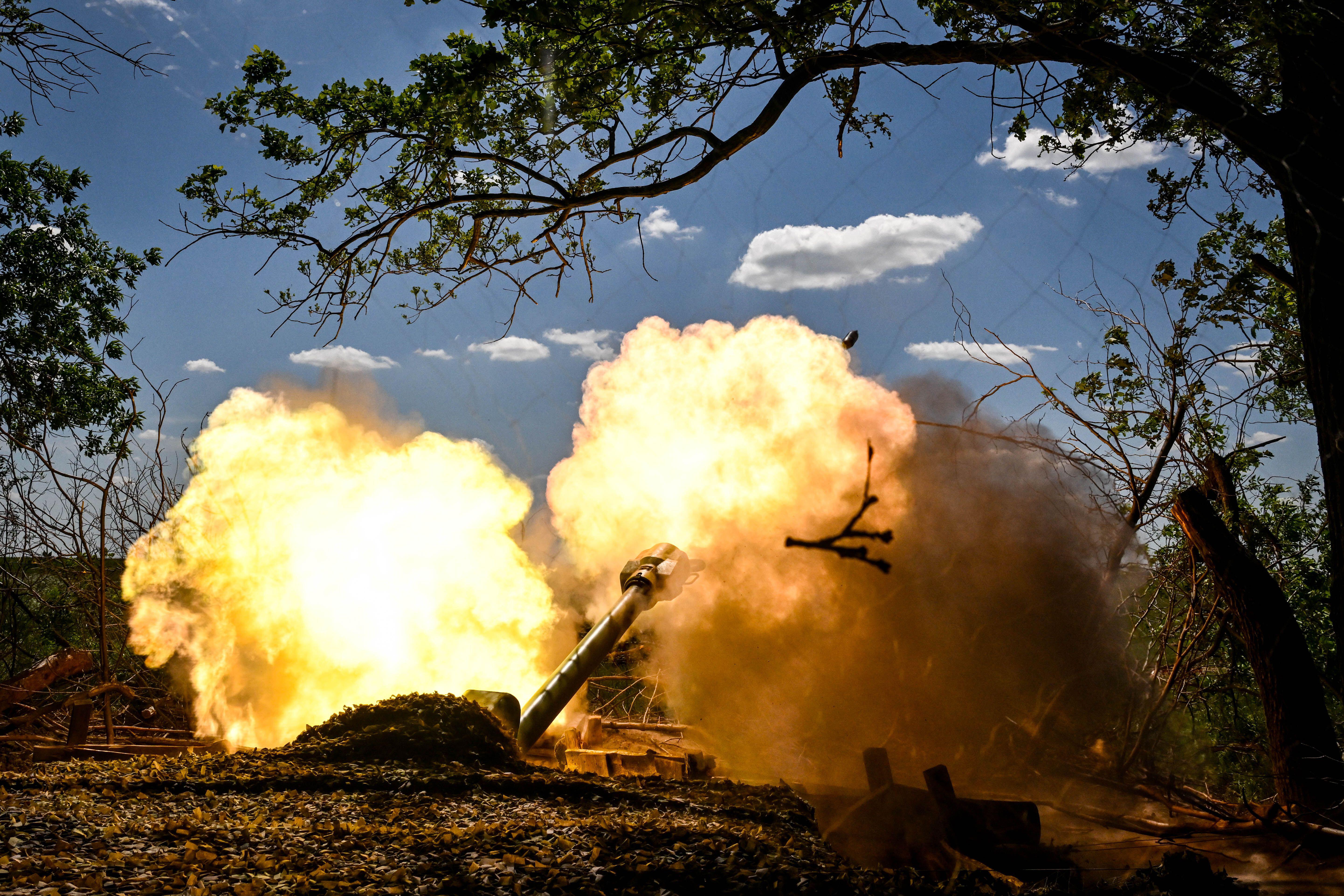U.S. and U.K. say Iran supplying Russia with ballistic missiles for Ukraine war in "significant escalation"
London — The United States and Britain formally accused Iran on Tuesday of supplying short-range ballistic missiles to Russia to use in Moscow's ongoing war in Ukraine, and the allies both said they would take measures to punish those involved. U.S. Secretary of State Antony Blinken, speaking alongside British Foreign Secretary David Lammy during a visit to London, said sanctions would be announced later Tuesday.
"Russia has now received shipments of these ballistic missiles and will likely use them within weeks in Ukraine, against Ukrainians," Blinken said. "The supply of Iranian missiles enables Russia to use more of its arsenal for targets that are further from the front line."
"For its part, Russia is sharing technology that Iran seeks — this is a two way street — including on nuclear issues, as well as some space information," Blinken said, adding that among the new sanctions coming from the U.S. would be additional measures targeting Iran Air, the Islamic Republic's flagship carrier.
Britain's government quickly announced its own new wave of sanctions, including seven new designations under its existing sanctions regime against Iran and three new measures against Russia.
Blinken and Lammy also said they were set to pay a joint visit to Ukraine on Wednesday, where they'll meet President Volodymyr Zelenskyy and other senior officials to discuss bolstering the country's defenses amid increasingly urgent requests from Kyiv for more and longer-range firepower — and for permission to use American weapons to hit targets deep inside Russian territory.
The Kremlin is trying to repel Ukraine's surprise offensive, which has seen Zelenskyy's forces claim hundreds of square miles of territory in Russia's Kursk region. But Russia has also been on the offensive, with its forces continuing to take ground along the long front line that stretches some 600 miles through Ukraine's eastern Donbas region.
The accusations about Iranian missiles could embolden Zelenskyy to further ramp up pressure on the U.S. and other allies to allow Ukraine to use Western-supplied missiles to strike deep within Russian territory and to hit sites from which Moscow launches its relentless aerial attacks. President Biden has allowed Ukraine to fire U.S.-provided missiles across the border into Russia in self-defense, but largely limited the distance over concerns about further escalating the conflict.
That hasn't stopped Ukraine from using its own weapons to hit targets deeper in Russia, including a massive wave of explosive drones launched Tuesday at multiple regions including Moscow.
U.S. Secretary of Defense Lloyd Austin, in his opening remarks at a Ukrainian security conference last week in Germany attended by Zelenskyy, declared it "a critical moment" in the war ignited by Russia's 2022 full-scale invasion.
As CBS News national security correspondent Charlie D'Agata reported, the meeting of the Ukraine Defense Contact Group at the Ramstein Air Base came just days after Zelenskyy's nation suffered its single worst attack of the year, when two ballistic missiles slammed into a military academy, killing dozens of people and wounding more than 170 others.
Lammy called the Iranian missile transfers to Russia "a troubling pattern that we're seeing. It is definitely a significant escalation."
Iran has denied providing Russia with weapons for its war in Ukraine.
"Iran considers the provision of military assistance to the parties engaged in the conflict — which leads to increased human casualties, destruction of infrastructure, and a distancing from cease-fire negotiations — to be inhumane," according to a recent statement from Iran's mission to the United Nations.
Word of the alleged transfers began to emerge over the weekend, with reports that U.S. intelligence indicated they were underway, according to people familiar with the matter who spoke on condition of anonymity. The U.S. and its allies have been warning Iran for months not to transfer ballistic missiles to Russia.
CIA Director William Burns, who was in London on Saturday for a joint appearance with his British intelligence counterpart, warned of the growing and "troubling" defense relationship involving Russia, China, Iran and North Korea, which he said threatens both Ukraine and Western allies in the Middle East.
The White House has repeatedly declassified and publicized intelligence findings that show North Korea has sent ammunition and missiles to Russia to use against Ukraine, while Iran also supplies Moscow with attack drones and has assisted the Kremlin with building a drone-manufacturing factory.
China has held back from providing Russia with weaponry, but it has surged sales to Russia of machine tools, microelectronics and other technology that Moscow in turn is using to produce missiles, tanks, aircraft and other weaponry, according to U.S. officials. It has also continued purchasing significant quantities of Russian energy products, helping to fund Moscow's war efforts.
Mr. Biden is set to host British Prime Minister Keir Starmer for talks at the White House on Friday, with support for Ukraine's defense on the agenda.

